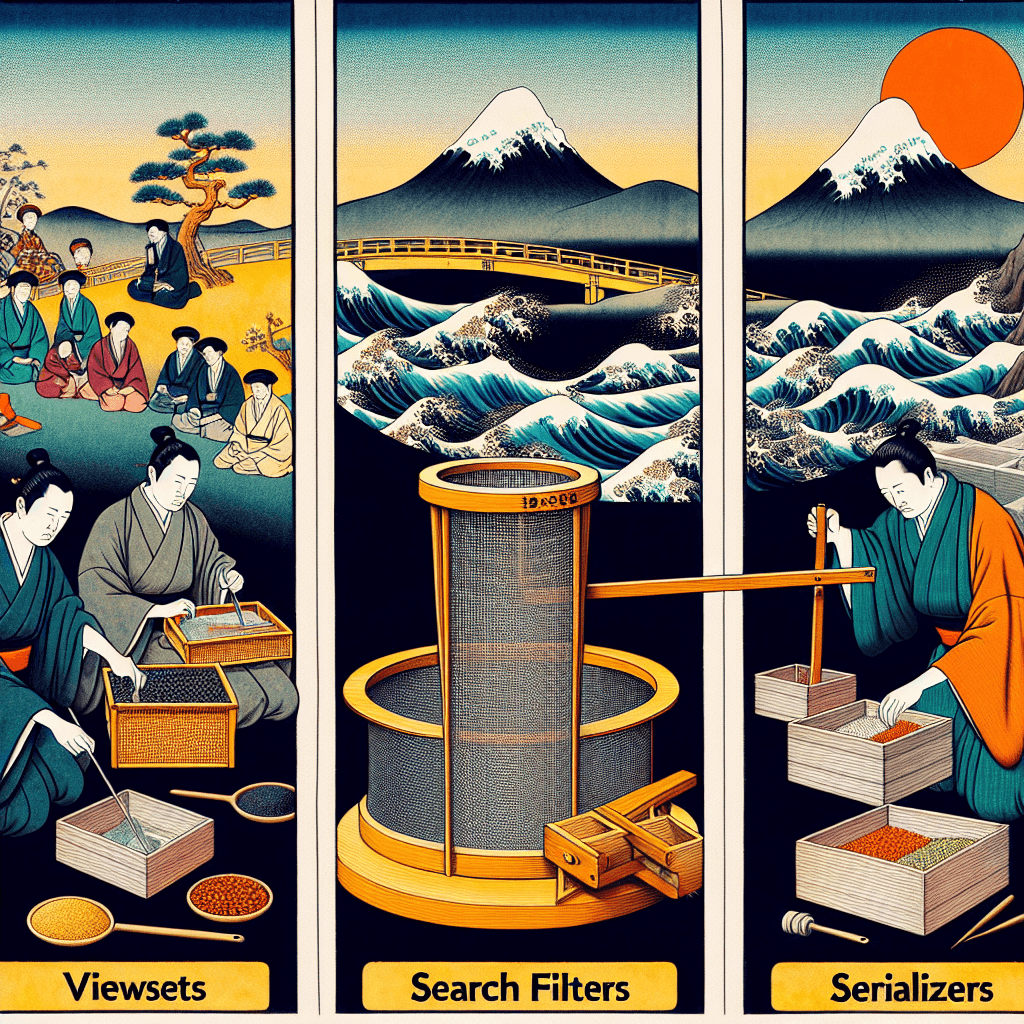

syndu | Oct. 11, 2023, 2:29 p.m.

Absolutely, I'd be happy to explain in more detail. Let's break it down into smaller, more digestible parts.
In Django REST Framework, a ViewSet is a type of class-based View, that does not provide any method handlers such as .get() or .post(), and instead provides actions such as .list() and .create(). Here's a simple example of a ViewSet:
from rest_framework import viewsets
from .serializers import MyModelSerializer
from .models import MyModel
class MyModelViewSet(viewsets.ModelViewSet):
queryset = MyModel.objects.all()
serializer_class = MyModelSerializer
In this example, MyModelViewSet is a class that inherits from viewsets.ModelViewSet. It specifies a queryset, which is the set of all instances of MyModel, and a serializer_class, which is the class that will be used to serialize (i.e., convert to JSON) instances of MyModel.
Search Filters in Django REST Framework allow you to filter your queryset based on certain parameters. For example, you might want to filter your queryset to only include instances of MyModel that have a certain attribute.
Here's an example of how you might use a Search Filter:
from rest_framework import viewsets, filters
from .serializers import MyModelSerializer
from .models import MyModel
class MyModelViewSet(viewsets.ModelViewSet):
queryset = MyModel.objects.all()
serializer_class = MyModelSerializer
filter_backends = [filters.SearchFilter]
search_fields = ['^attribute']
In this example, filter_backends is set to [filters.SearchFilter], which means that the Search Filter will be used to filter the queryset. search_fields is set to ['^attribute'] which means that the queryset will be filtered to only include instances of MyModel where the attribute starts with the provided search term.
Serializers in Django REST Framework allow you to convert complex data types, such as Django models, into Python native datatypes that can then be easily rendered into JSON, XML, or other content types. Serializers also provide deserialization, validating incoming data.
Here's an example of a Serializer:
from rest_framework import serializers
from .models import MyModel
class MyModelSerializer(serializers.ModelSerializer):
class Meta:
model = MyModel
fields = ['attribute1', 'attribute2']
In this example, MyModelSerializer is a class that inherits from serializers.ModelSerializer. It specifies a model, which is the model that will be serialized, and fields, which are the fields of the model that will be included in the serialized representation.
To answer your question, yes, you would need to adapt the code I provided for each app in your project. This is not a project-wide hack, but rather a standard way of doing things in Django REST Framework. It's a powerful and flexible framework that allows you to build APIs quickly and easily.
I hope this explanation helps! Let me know if you have any more questions.